The Complete Works of OPPIAN (fl. 2nd-century AD)  Contents
Contents  Delphi Classics 2021 Version 1
Delphi Classics 2021 Version 1  Browse Ancient Classics
Browse Ancient Classics 





 The Complete Works of OPPIAN OF CILICIA
The Complete Works of OPPIAN OF CILICIA  By Delphi Classics, 2021
By Delphi Classics, 2021
COPYRIGHT
Complete Works of Oppian First published in the United Kingdom in 2021 by Delphi Classics. Delphi Classics, 2021. All rights reserved. No part of this publication may be reproduced, stored in a retrieval system, or transmitted, in any form or by any means, without the prior permission in writing of the publisher, nor be otherwise circulated in any form other than that in which it is published. ISBN: 978 1 80170 035 1 Delphi Classics is an imprint of Delphi Publishing Ltd Hastings, East Sussex United Kingdom Contact: sales@delphiclassics.com

www.delphiclassics.com
The Translations

Ruins at Anazarbus, an ancient Cilician city.
Under the late Roman Empire, it was the capital of Cilicia Secunda. Biographies attached to medieval manuscripts of Oppian state that his birthplace was Caesarea (Anazarbus), southern Anatolia (Turkey).
Fishing

Translated by A. W. Mair, 1928 Oppian of Cilicia was a second-century Greco-Roman poet, who flourished during the reign of the emperors Marcus Aurelius and Commodus. He is chiefly remembered for writing the Halieutica , a five-book didactic epic on fishing.
It is composed of about 3,500 lines, bearing a dedication to Marcus Aurelius and his son Commodus, approximately dated to the time of their joint rule (176-180 AD). The poem can be divided into two parts: Books I and II concern the behaviour of fish and other marine animals, while Books III-V describe various fishing techniques. The content of the text is not sufficient to serve as a practical guide for fishing, though it provides examples of good and bad behaviour. The fish in the Halieutica are depicted in an anthropomorphic fashion, as their behaviour is generally motivated by emotions such as hate, love, greed, jealousy and amity. The fish are also frequently the subject of Homeric similes. where Homer compares epic heroes with animals, the actions of animals in the Halieutica are compared to all types of human behaviour. where Homer compares epic heroes with animals, the actions of animals in the Halieutica are compared to all types of human behaviour.
After the introduction and dedication, the first half of Book I contains a catalogue of marine animal species, sorted by their habitat. The second half of the book describes their reproductive behaviour. The second book concerns the battles of fish, how predators catch their prey and techniques that fish use to avoid capture by other fish. Book III starts with a description of the preparations for fishing, before explaining how fish escape fishermen. The main section of the book features various techniques of capturing fish through their gluttony, followed by a list of fish that can be caught due to their aggression, before culminating with tuna fishing. The principle theme of the fourth book is fishing through the manipulation of the love and lust of the fish.
The rest of the book describes techniques of frightening fish and fishing with poison. The final book serves as a grand finale, teaching how to catch the largest animals of the sea, including whales, sharks and dolphins. The didactic epic is concluded with a section on the fatal outcome of sponge diving.  Marble bust of the dedicatee, the Emperor Marcus Aurelius, c. 170 AD, Muse Saint-Raymond, Toulouse, France
Marble bust of the dedicatee, the Emperor Marcus Aurelius, c. 170 AD, Muse Saint-Raymond, Toulouse, France  Bust of Commodus as Hercules, c. 192 AD, Capitoline Museums, Rome CONTENTS
Bust of Commodus as Hercules, c. 192 AD, Capitoline Museums, Rome CONTENTS  A mosaic depicting ancient fishermen, Utica Punic and Roman archaeological site, Tunisia
A mosaic depicting ancient fishermen, Utica Punic and Roman archaeological site, Tunisia
BOOK I
The tribes of the sea and the far scattered ranks of all manner of fishes, the swimming brood of Amphitrite, will I declare, O Antoninus, which encounter them when they traverse the secret places of the deep.
No hounds guide the fishers on their seaward {p205} path for the tracks of the swimming tribes are unseen nor do they see where the fish will encounter them and come within range of capture; for not by one path does the fish travel. In feeble hairs and bent hooks of bronze and in reeds and nets the fishers have their strength. Yet not bereft of pleasure art thou, if pleasure thou desirest, but sweet is the royal sport. A ship well-riveted, well-benched, light exceedingly, the young men drive with racing oars smiting the back of the sea; and at the stern the best man as steersman guides the ship, steady and true, to a wide space of gently heaving waves; and there feed and thy heart is gladdened, O Lord of earth. For great delight it is for eye and mind to see the captive fish tossing and turning. But be thou gracious unto me, thou who art king {p207} in the tract of the sea, wide-ruling son of Cronus, Girdler of the earth, and be gracious thyself, O Sea, and ye gods who in the sounding sea have your abode; and grant me to tell of your herds and sea-bred tribes; and do thou, O lady Goddess, direct all and make these gifts of thy song well pleasing to our sovereign lord and to his son.
Infinite and beyond ken are the tribes that move and swim in the depths of the sea, and none could name them certainly; for no man hath reached the limit of the sea, but unto three hundred fathoms less or more men know and have explored the deep. But, since the sea is infinite and of unmeasured depth, many things are hidden, and of these dark things none that is mortal can tell; for small are the understanding and the strength of men. The briny sea feeds not, I ween, fewer herds nor lesser tribes than earth, mother of many. But whether the tale of offspring be debatable between them both, or whether one excels the other, the gods know certainly; but we must make our reckoning by human wits. Now fishes differ in breed and habit and in their path in the sea, and not all fishes have like range. For some keep by the low shores, feeding on sand and whatever things grow in the sand; to wit, the Sea-horse, Others again feed in the mud and the shallows and whatsoever else feeds in mud.
Next page
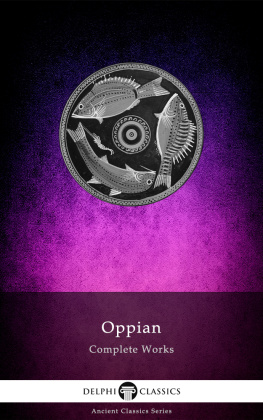
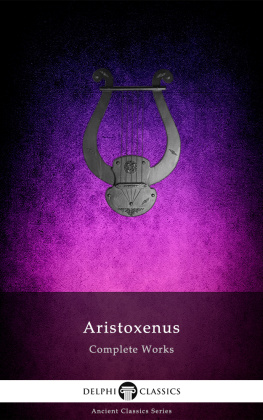
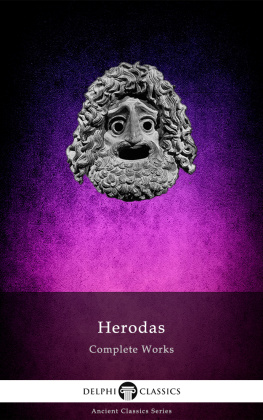
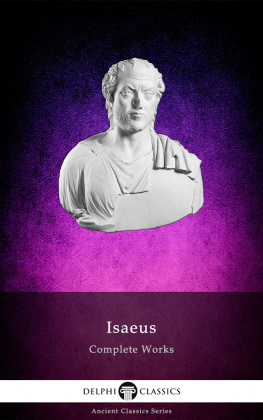
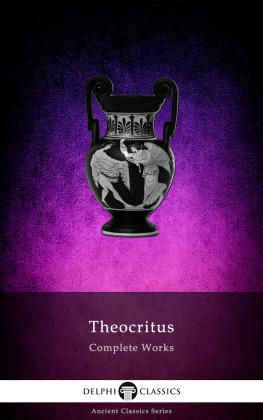
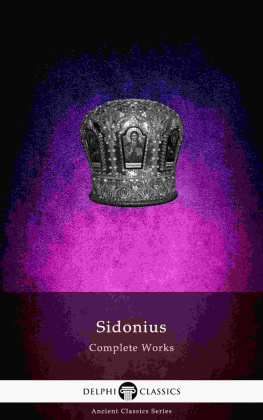
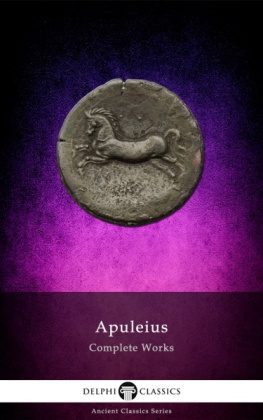

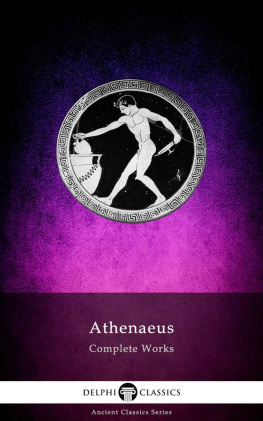
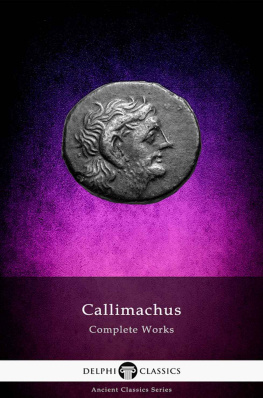
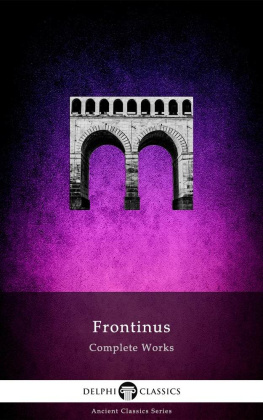
 Contents
Contents  Delphi Classics 2021 Version 1
Delphi Classics 2021 Version 1  Browse Ancient Classics
Browse Ancient Classics 





 The Complete Works of OPPIAN OF CILICIA
The Complete Works of OPPIAN OF CILICIA  By Delphi Classics, 2021
By Delphi Classics, 2021 www.delphiclassics.com
www.delphiclassics.com  Ruins at Anazarbus, an ancient Cilician city.
Ruins at Anazarbus, an ancient Cilician city.  Translated by A. W. Mair, 1928 Oppian of Cilicia was a second-century Greco-Roman poet, who flourished during the reign of the emperors Marcus Aurelius and Commodus. He is chiefly remembered for writing the Halieutica , a five-book didactic epic on fishing.
Translated by A. W. Mair, 1928 Oppian of Cilicia was a second-century Greco-Roman poet, who flourished during the reign of the emperors Marcus Aurelius and Commodus. He is chiefly remembered for writing the Halieutica , a five-book didactic epic on fishing.  Marble bust of the dedicatee, the Emperor Marcus Aurelius, c. 170 AD, Muse Saint-Raymond, Toulouse, France
Marble bust of the dedicatee, the Emperor Marcus Aurelius, c. 170 AD, Muse Saint-Raymond, Toulouse, France  Bust of Commodus as Hercules, c. 192 AD, Capitoline Museums, Rome CONTENTS
Bust of Commodus as Hercules, c. 192 AD, Capitoline Museums, Rome CONTENTS  A mosaic depicting ancient fishermen, Utica Punic and Roman archaeological site, Tunisia
A mosaic depicting ancient fishermen, Utica Punic and Roman archaeological site, Tunisia